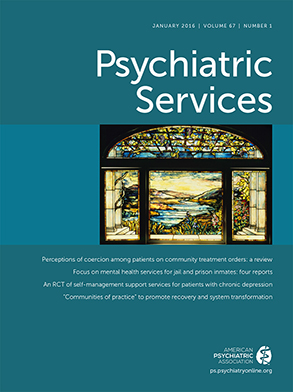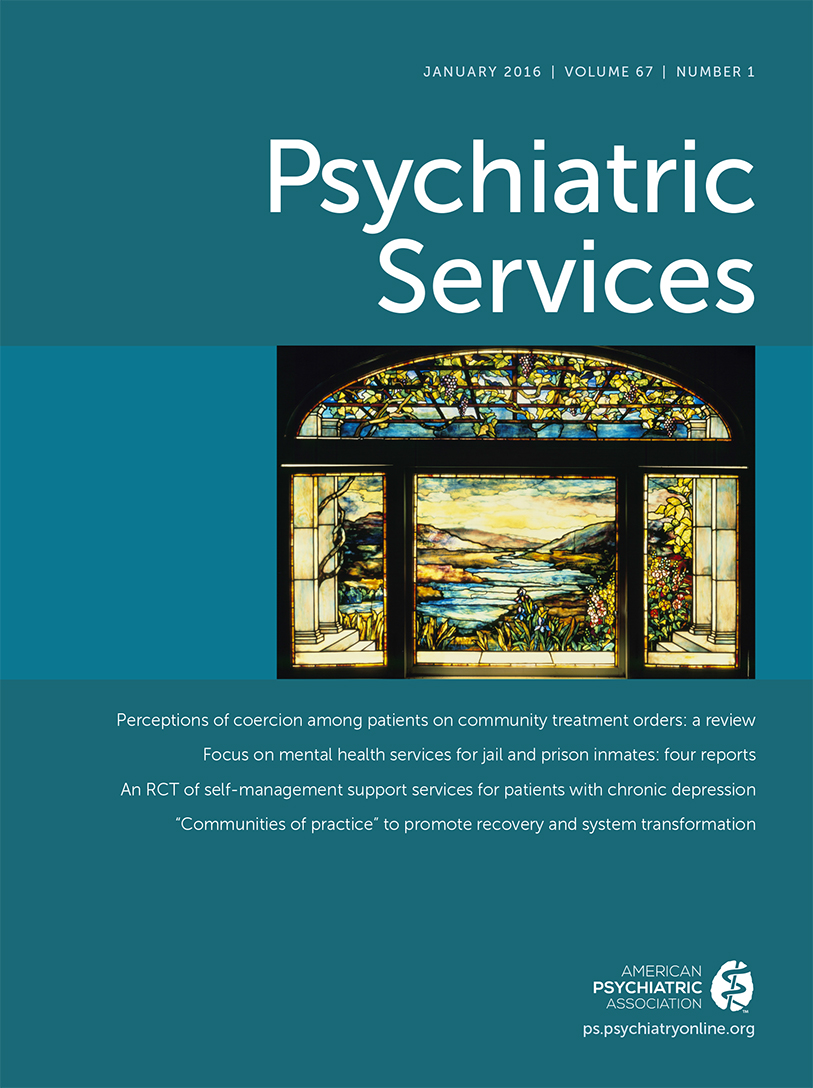TO THE EDITOR: START NOW is a 32-session, skills-based, group psychotherapy for inmates of correctional systems. We previously found that inmates who completed more program sessions had fewer subsequent disciplinary infractions during incarceration (
1). However, because the effect on clinical outcomes remained unknown, we tested whether number of sessions completed is predictive of number of inpatient psychiatric days up to six months after program participation. The study was approved by the UConn Health Institutional Review Board (no. 14-132-2).
We included program participation events occurring from 2010 through 2013 (N=953). Zero-inflated negative binomial regression was used. Standard errors were adjusted for clustering within the individual because an individual could participate in the program more than once. The need score for mental health care (assigned by UConn Health psychiatric staff) was used in the logistic portion of the two-stage model. Because our earlier study found significant variation in program effect across security risk groups (scores assigned by the Connecticut Department of Correction), we examined both main and conditional effects of number of sessions completed across security risk groups. Our simple models included only number of completed sessions, risk score, and their interaction in the prediction of inpatient psychiatric days.
The number of postprogram inpatient days ranged from 0 to 67. Only 4.8% of observations had any inpatient days in the posttreatment period. Each program session completed was associated with a 5% decrease in the predicted number of inpatient days (incident rate ratio [IRR]=.95, SE=.02). Security risk groups 2 (IRR=9.87, SE=8.57) and 4 (IRR=3.60, SE=2.71) had significantly higher IRRs than risk group 1 (lowest risk). Inclusion of the interaction term revealed significant variation in the effect of number of sessions completed by risk group. The slopes for risk groups 3 and 4 were significantly different from that of risk group 1. Examination of the margins, with completed sessions categorized into four session clusters (one to four completed, five to nine completed, and so forth), indicated that all risk groups differed in the effect of sessions up to about 13–17 sessions completed, after which the groups were no longer distinct in the effect of sessions on later hospitalization. Overall, the predicted number of inpatient days decreased with more sessions completed, and the variation across groups narrowed with more sessions.
START NOW appears to have had a beneficial clinical effect, particularly for inmates with higher security scores. Each session completed was associated with a 5% decrease in subsequent hospital days. Although the findings are promising, two limitations should be noted. First, inpatient psychiatric hospitalization was a relatively rare event. Although we had a sufficient sample size to pursue this investigation, larger samples would increase confidence in the program’s clinical effect. Other measures of clinical effectiveness are also warranted. Second, unmeasured external forces concurrent to START NOW may have influenced later hospitalization (for example, other programming). However, the findings strongly suggest a beneficial program effect on hospitalization and contribute to the modest literature on evidence-based correctional psychotherapy (
2).
Acknowledgments
The authors thank the Connecticut Department of Correction for providing data, making this work possible.

